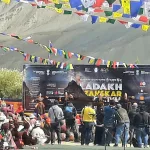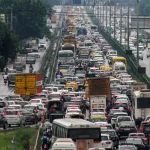Ina democratic country like India, the line separating free speech and hate speech is indeed very fine. While free speech encourages free thinking and debate, hate speech suppresses thought and incites violence. As Martin Luthor King Jr has rightly said- “Like an unchecked cancer, hate corrodes the personality and eats away its vital unity. Hate destroys a man’s sense of values and his objectivity. It causes him to describe the beautiful as ugly and the ugly as beautiful, and to confuse the true with the false and the false with the true.”
Even though ate speech has not been defined under any existing law in India, it has been described as “any kind of communication in speech, writing or behaviour, that attacks or uses pejorative or discriminatory language with reference to a person or a group on the basis of who they are, in other words, based on their religion, ethnicity, nationality, race, colour, descent, gender or other identity factor.” by the United Nations Strategy and Plan of Action on Hate Speech. This definition highlights three important attributes:
Hate speech can be conveyed through any form of expression, including images, cartoons, memes, objects, gestures and symbols and it can be disseminated offline or online. Hate speech is “discriminatory” – biased, bigoted, intolerant – or “pejorative” – in other words, prejudiced, contemptuous or demeaning – of an individual or group. Hate speech makes reference to real, purported or imputed “identity factors” of an individual or a group in a broad sense: “religion, ethnicity, nationality, race, colour, descent, gender,” but also any other characteristics conveying identity, such as language, economic or social origin, disability, health status, or sexual orientation, among many others.
During elections, in the absence of any specific law governing hate speech and rumor mongering, The Election Commission of India employs various provisions of The Indian Penal Code and The Representation of People Act- 1951 to ensure that members of the political parties or even other persons do not make statements to the effect of creating disharmony between different sections of the society. Political speeches in the election season often assume a divisive tone in order to exploit social prejudices for electoral gains. However, this discourse must take place in an environment that does not foster abusive or hateful sentiments. Though, political rivalry might encourage the use of unwarranted language, it is unwise to restrict speech that merely showcases the tendency to evoke unwanted circumstances without intention. In order to promote robust and healthy debate, it is important that a fine balance is struck between freedom and restrictions.
Even though the concept of free speech in India is still in its nascent stage, legally speaking, Sec295A of the Indian Penal Code punishes hurting the sentiments of religious believers through offensive or insulting speech. This is an anti-blasphemy law that was introduced as far back as 100 years in order to combat communal tension brewing between Hindus and Muslims. The same law is being used even today to punish any critique of religion, religious jokes or even at times statements of facts. The section is basically a sword that is wielded by some to shut down the power of free speech not only for themselves, but also for everyone else. In a democratic country like India which is known for its UNITY IN DIVERSITY, it is imperative that free speech is what it is claimed to be–FREE! The citizens must be given the freedom to put forward their opinion on all subjects including religion. Such opinion that proves to be distasteful has to be countered not by supressing it, but by the force of moral and ethical criticism.
A stark contrast to the freedom of speech is the concept of- HATE SPEECH. Hate speech is not speech that targets a religion or a religious figure per se, but speech that targets a group of citizens by virtue of their (e.g., religious) affiliation and calls for discrimination against that group, or their exclusion from mainstream social life (for example, through boycotts). Various judgements have been passed in this area in an effort to codify some law regarding the code of conduct of the political parties with special reference to the speeches given by them during the election season.
In the case of PravasaiBhilaiSanghatan vs. Union of India (2014), the Supreme Court referred to the Law Commission of India the question of whether the Election Commission should be given the power to de-recognize a political party, disqualifying it or its members, if the party or its members indulge in hate speech. The Law Commission of India’s 267th Report however, neither answered the Court’s question nor made any explicit recommendations to the Parliament to strengthen the Election Commission of India to curb this menace, it only recommended that the Indian Penal Code and the Code of Criminal Procedure be amended. The said report was submitted in 2017 wherein the committee had suggested various amendments. The experts however always have the same concerns- adding to the list of laws will not make any difference till the time the existing laws are implemented properly. Till the time the black letter law is implemented properly, grey areas shall continue to exist and the problems will persist.
The Indian Penal Code has made special provision for combating hate speech u/s 153A and 153B. while Sec 153A talks about prohibiting “disharmony” or “enmity” between different sections of society, it can be clearly seen that it is not so much concerned about guaranteeing equal respect and concern to all members of society, but rather focuses on preventing group outrage. Again the biggest shortcoming of this section too seems to be that the entire focus is put on ‘how’ the individual or group feels about the speech.”Earlier, hate speech would usually rise in the run-up to elections. But now, with our changed media landscape, politicians have realised that something offensive said in one state could be magnified for direct political benefit in another state immediately”.
India even though has enough laws in place to check hate speech, yet something seems to be amiss. Hate speech laws in India require the executive to enforce them. And most of the times, they don’t want to act. Even though hate speech has not been defined in any law in India, legal provisions in certain legislations prohibit select forms of speech as an exception to freedom of speech. Apart from the sections 124A, 153A, 153B, 295A, 298 and 505(1) and (2) of the Indian Penal Code; Sections 8, 123(3A) and sec 125 of The Representation of The People act, 1951 and sections 95, 107 and 144 of the CrPC also pertain to the act of Hate speech to some extent. The courts have time and again held that-
Our commitment to freedom of expression demands that it cannot be suppressed unless the situations created by allowing the freedom are pressing and the community interest is endangered. The anticipated danger should not be remote, conjectural or farfetched. It should have proximate and direct nexus with the expression. The expression of thought should be intrinsically dangerous to the public interest. In other words, the expression should be inseparably locked up with the action contemplated like the equivalent of a “spark in a powder keg”. The reason that the courts have been reluctant to address the issue of hate speech is because it becomes akin to putting a control on the freedom of speech. The Right to freedom of speech and expression is one of the most essential liberties recognized by the democratic States. The concept of liberty has been primarily influenced by the principle of individual autonomy. The objective of free speech in a democracy is to promote multiplicity of opinions and to discourage herd mentality. The concept of individualistic thinking has been beautifully penned by J.S. Mill in the following words, in his work ‘On Liberty’: “If all mankind minus one, were of one opinion, and only one person were of the contrary opinion, mankind would be no more justified in silencing that one person, than he, if he had the power, would be justified in silencing mankind.”
Looking at the international arena, the analysis of hate speech in different countries suggests that despite not having a general definition, it has been recognised as an exception to free speech by international institutions and municipal courts. The courts themselves have also developed certain tests to determine whether a particular statement will be covered within the ambit of hate speech or not. Once it has been established that there has been an interference with freedom of expression, the courts resort to a three-fold analysis to determine the legitimacy of such interference:
(a) Is the interference prescribed by law?
(b) Is the interference proportionate to the legitimate aim pursued?
(c) Is the interference necessary in a democratic society?
Furthermore the courts also see if the speech is offensive and projects the extreme form of emotion as every offensive statement does not amount to hate speech. The speech must also amount to incitement in order to be restricted. The status of the author of the speech is also of extreme importance. Thus ‘interferences with the freedom of expression of a politician … calls for the closest scrutiny on the Court’s part. On the other hand, the status of the targeted audience is also important in determining whether a speech can be limited. The potential impact of the speech has to be viewed to determine the speaker’s state of mind at the time speech was rendered. And finally every seemingly hateful speech may not be termed as a hate speech. The context in which the speech was made is essential in determining its permissibility. In the words of Lord Reid:
“…[T]hat the law shall be certain, and that it shall be just and shall move with the times.”
The need of the hour demands that careful circumspection needs to be undertaken regarding the laws on hate speech else India is in danger of becoming a regressive state with all its laws going back in time rather than forging ahead and creating history.
“Social media provides a global megahone for hate”…António Guterres
(The author is an Advocate on Record practising in the Supreme Court of India, Delhi High Court and all District Courts and Tribunals in Delhi. She has done her Doctorate in Criminal Law and is the Legal Member in the Internal Complaints Committee of various private as well as Government Organizations. She is also an empanelled advocate of various government institutions. Email: [email protected])





